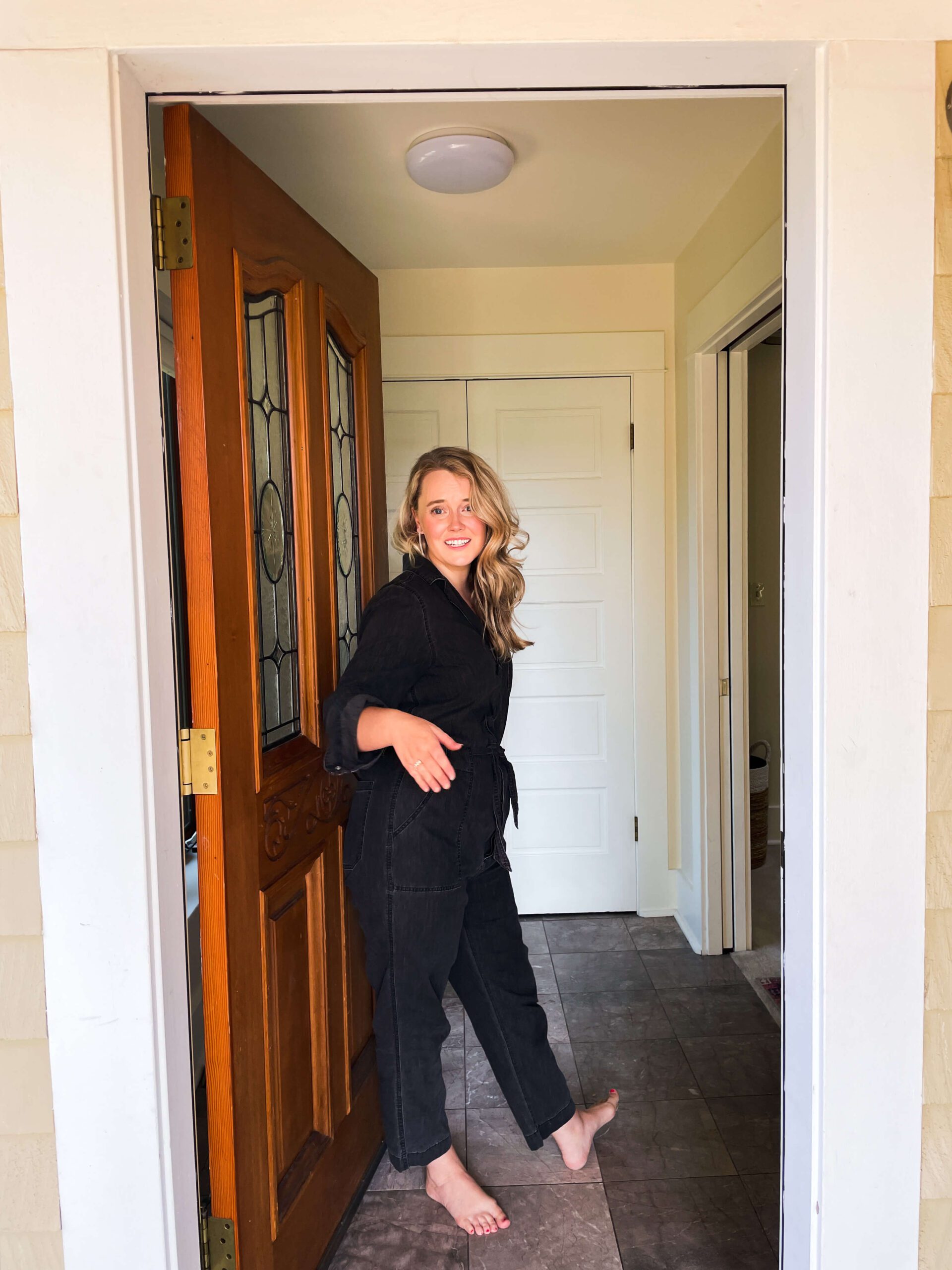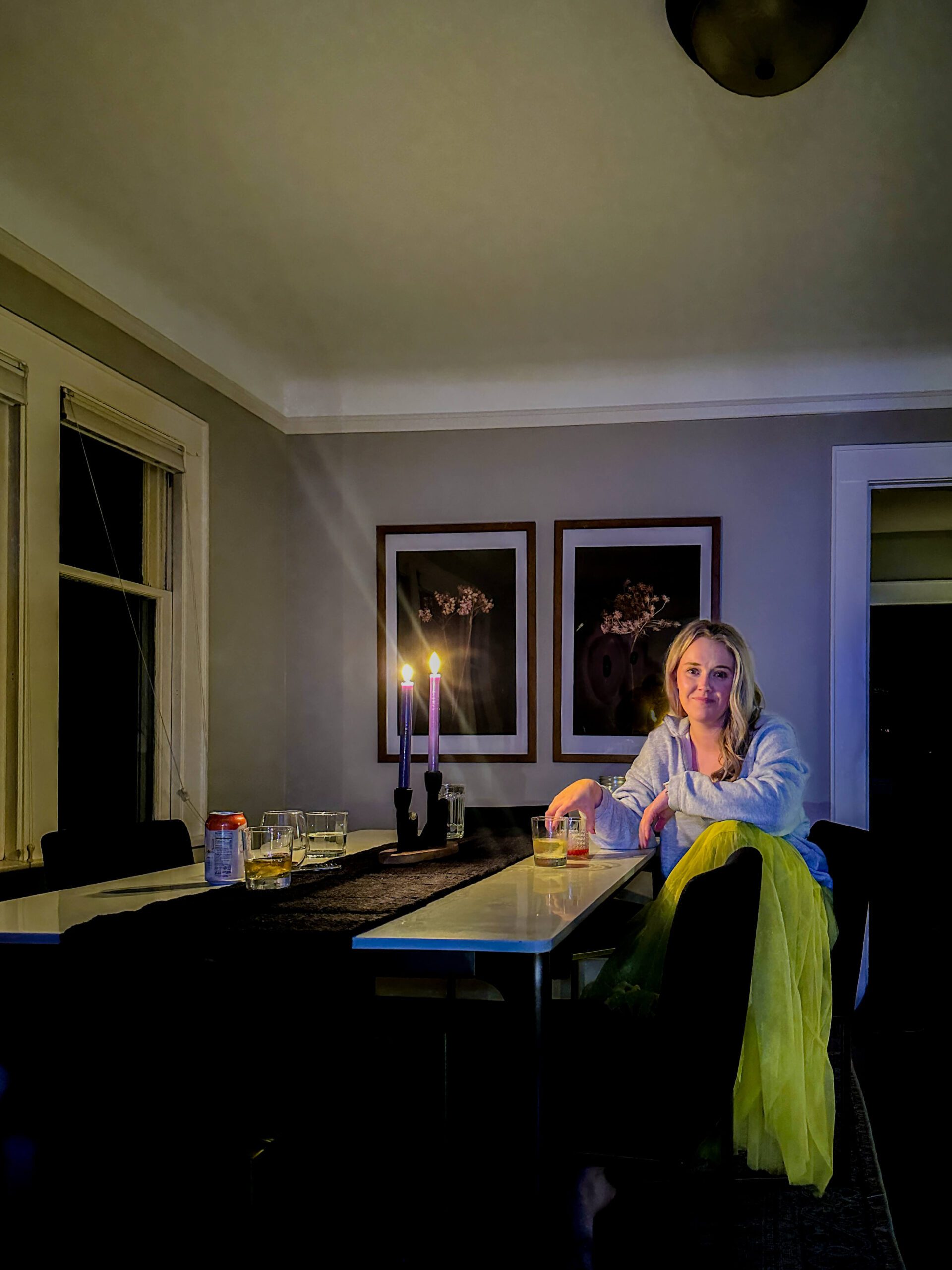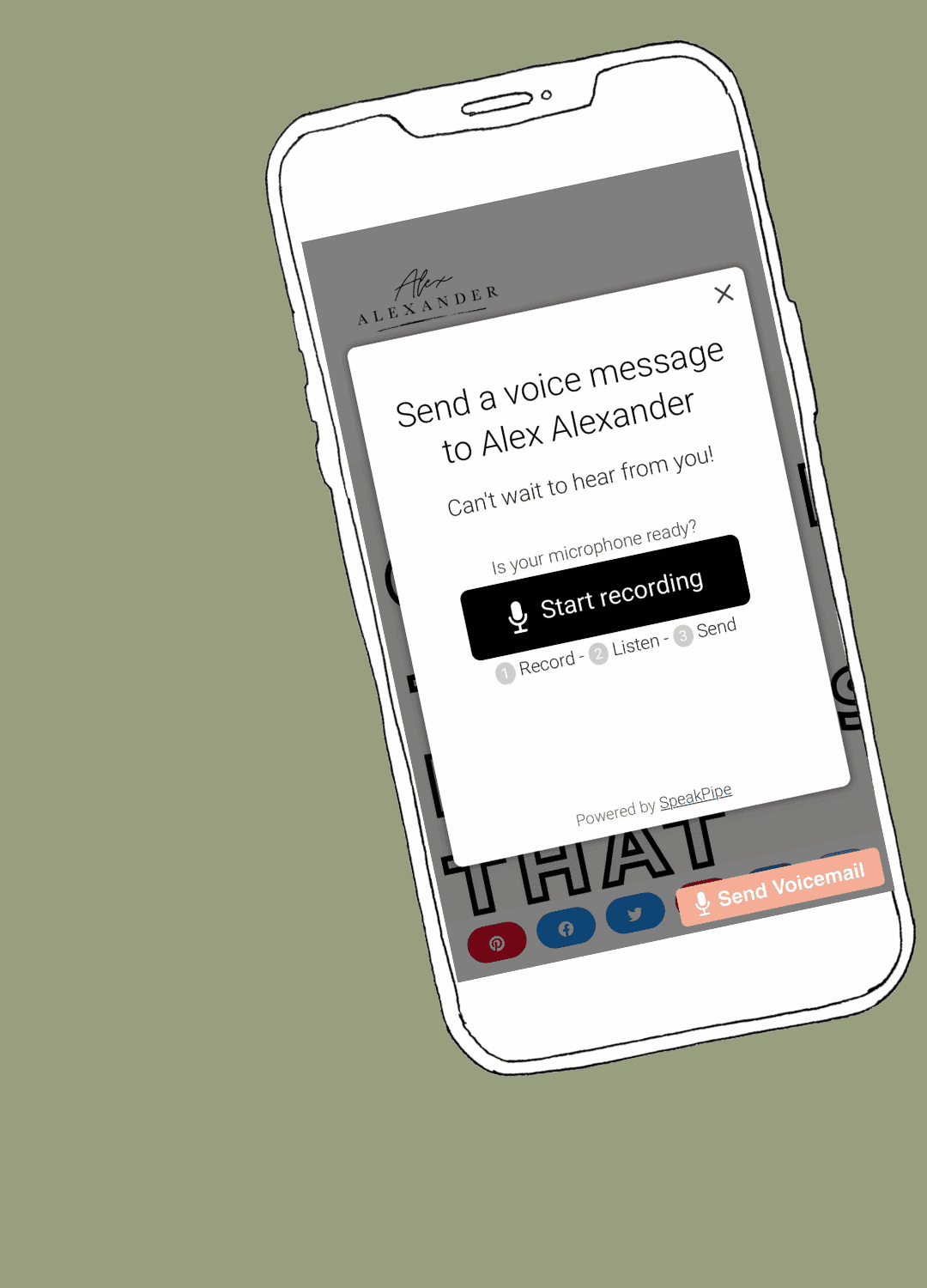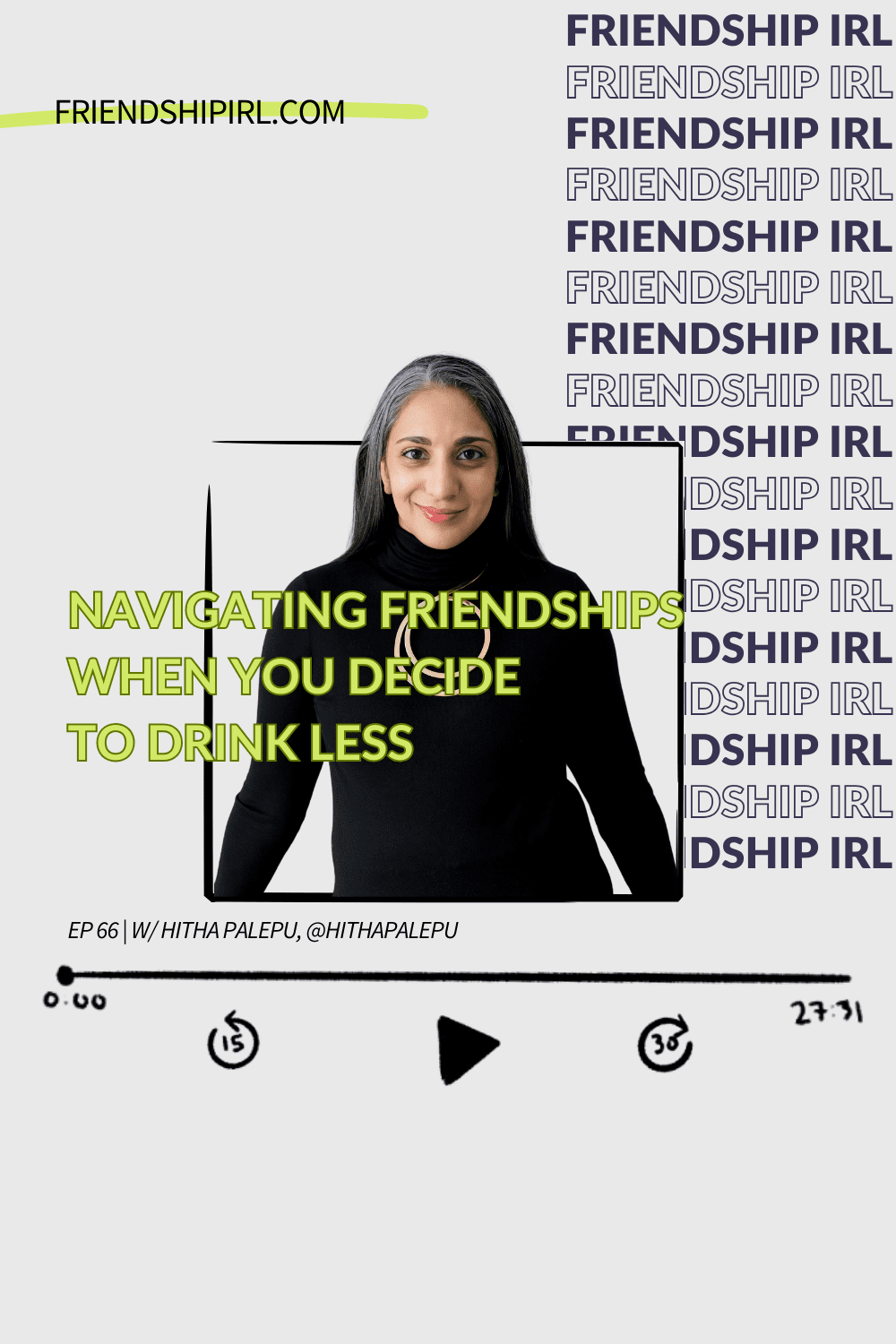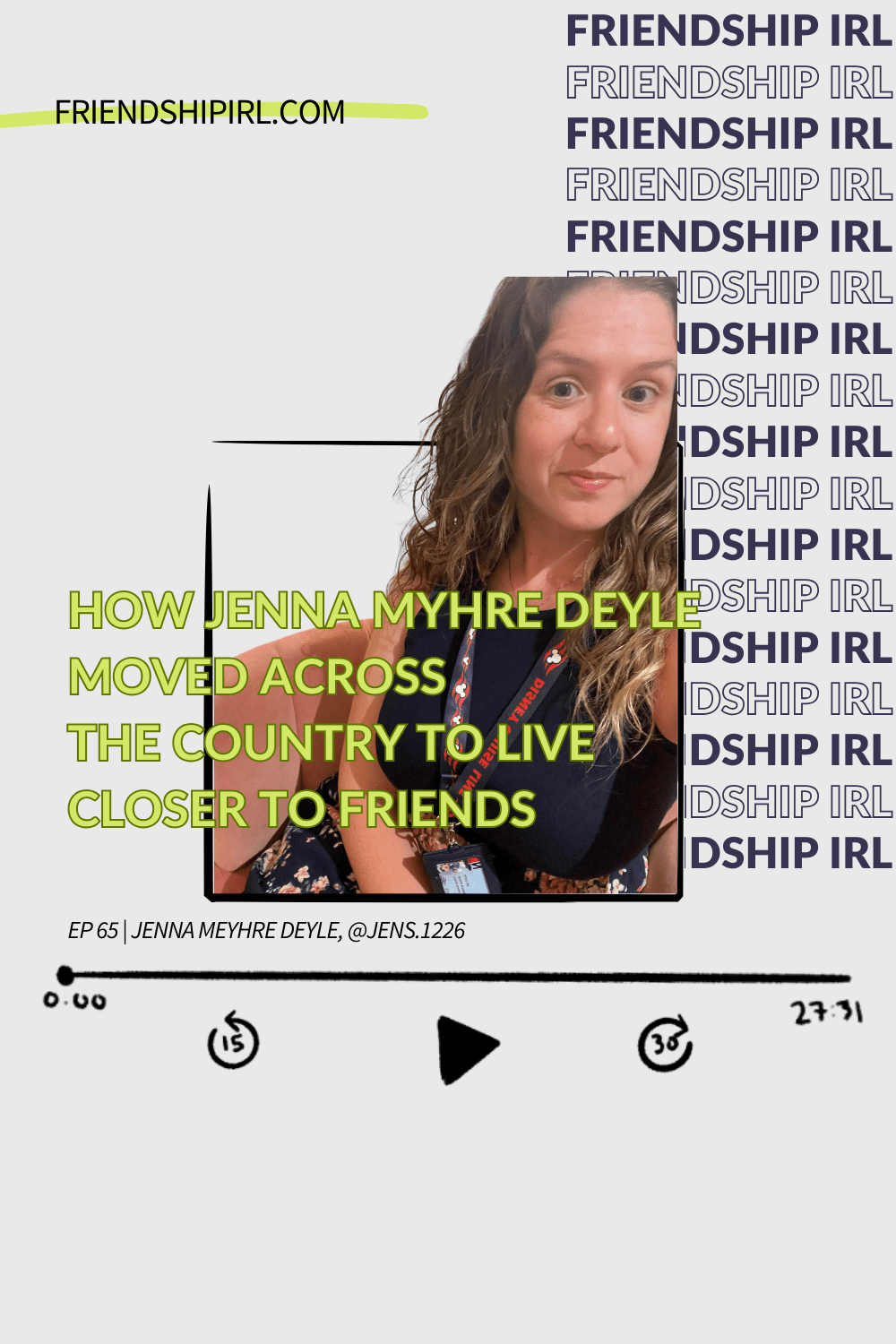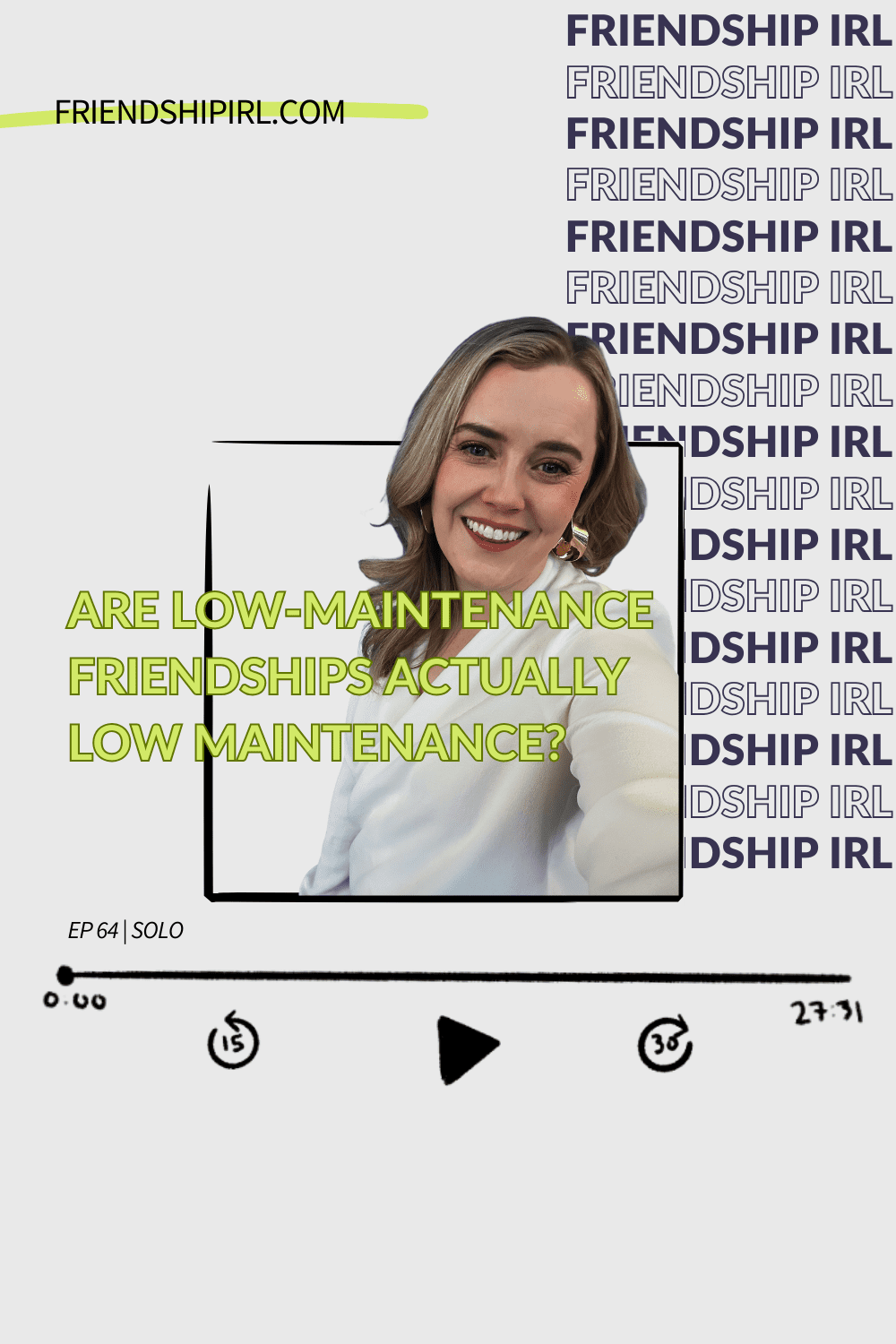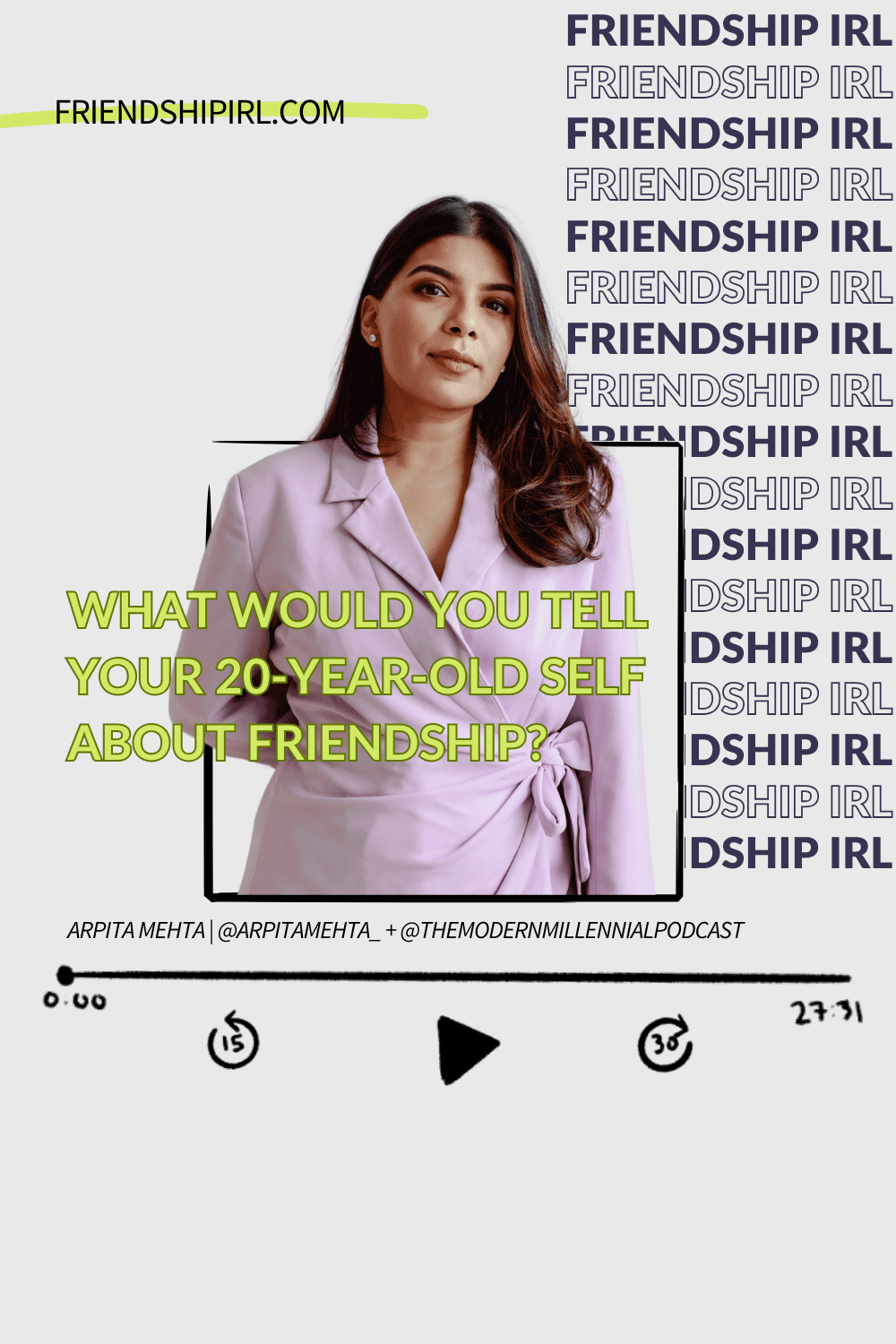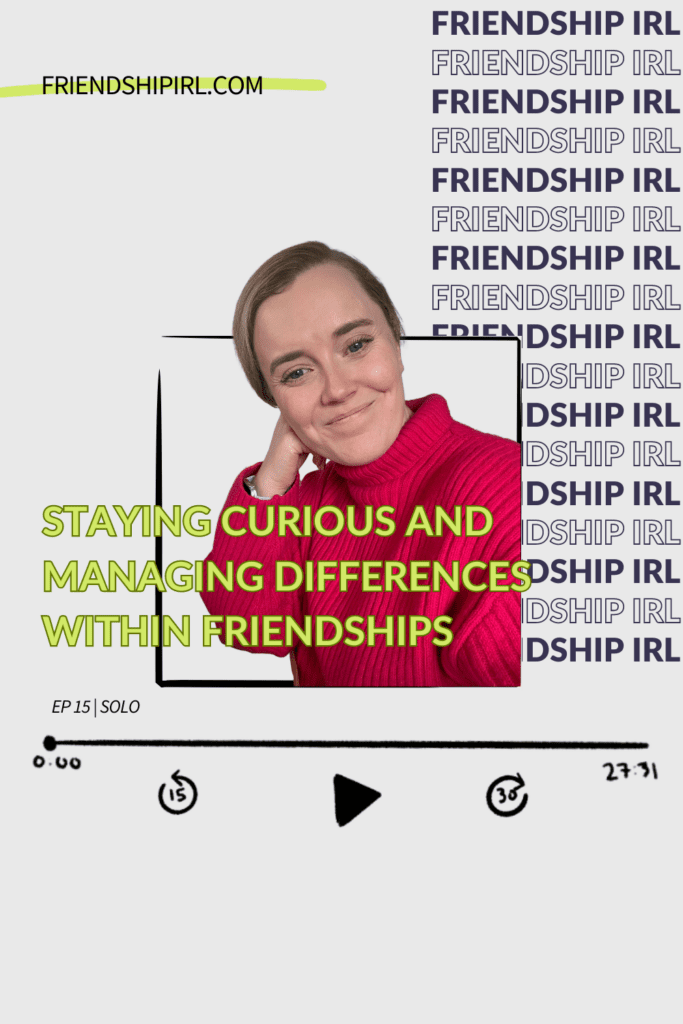
Podcast Description
I feel like everybody wants the easy button to friendship.
And while there isn’t an easy button, I do think managing friendship dynamics is something you can get better at. I also think a lot of us are making it harder than it needs to be.
A lot of people tell me they want friends who are in the same place as them. Maybe that means they want friends who are parents. Friends who have the same interests. Friends who are in similar financial situations. Couple friends.
It makes sense; managing differences is difficult. It’s easier to be friends with people doing the same things as us. But even if you make friends with people who are in the same life moment as you, at some point, if this is a lasting friendship, you will have to manage differences with these friends.
So that’s what today’s episode is about: managing differences with new and established friends, and how staying open and curious can actually SUPERCHARGE our friendships.
In this episode you’ll hear about:
- How friends are some of the only people we don’t necessarily factor into big life choices – which means we’re constantly making different life choices than our friends
- Putting your best foot forward – i.e., morphing ourselves to become desirable friends – and how this is inauthentic and takes more energy in the long run
- Managing differences within friendships that already exist – and why it can be more difficult with these friends than with new ones
- The importance of staying curious and seeing our friends’ lives as windows into other ways of living, which can help alleviate problems and SUPERCHARGE friendships
Reflection Question:
What do you find to be the most difficult aspect about managing differences with friends?
Notable Quotes from Alex:
“Even if you make new friends who are in this life moment, at some point, if this is a lasting friendship, you will have to manage differences with these friends. If you have moved into a new life phase, and you are partnered, and you’re looking for other coupled friends, if this is a lasting friendship, what happens if you lose a partner? Your friends get divorced? These people move across the country? Anything can happen at any point. And you either have to find new friends who are now in this new life phase that you’re in or figure out how to manage your differences.”
“This ability to stay curious is a skillset. If we really hone in this skillset, we can manage our differences way easier. And there is an added bonus of this ability to stay curious and manage our differences. And that’s that people will let us in. We will get a more authentic view into our friends’ lives. We get more information. We see that there are more options. We can ask more questions. And not only does this alleviate problems, but I actually really think it supercharges our friendships.”
Resources & Links
Like what you hear? Visit my website, leave me a voicemail, and follow me on Instagram!
Want to take this conversation a step further? Send this episode to a friend. Tell them you found it interesting and use what we just talked about as a conversation starter the next time you and your friend hang out!
Leave Alex a voicemail!
Maintaining Friendships when Differences Arise
@itsalexalexander #duet with @katieh4258 Follow PART 2 . I’ve got suggestions on how to make this CLOSER TO EQUAL. #singlelife #friendshipadvice ♬ original sound – Kathryne Harris
@itsalexalexander Many childless people I know love spending time with friends kids, but it’s often assumed we won’t want to. Parents — ask your friends because you might be surprised to find you have a whole support network you didn’t even think was an option. #childlessmillennials #whereismyvillage #parentingishard ♬ original sound – Alex | Community + Friendship
Can I add you to the group chat?
Don't miss an update - Sign up for our weekly newsletter.
Until next time…
Take the conversation beyond the new podcast on friendship! Follow Alex on Instagram (@itsalexalexander) or Tiktok (@itsalexalexander), or send her a voice message directly with all your friendship thoughts, problems, and triumphs by heading to AlexAlex.chat and hitting record.
Episode Transcript
Podcast Intro 00:02
Alrighty, gang. Here’s to nights that turn into mornings and friends that turn in family. Cheers!
Podcast Intro 00:18
Hello, Hello, and welcome to the Friendship IRL podcast. I’m your host, Alex Alexander. My friends… They would tell you; I like to ask the hard questions. You know who I am in the group? I’m the person that’s saying, “Okay, I’m going to ask this question, but don’t feel like you have to answer it.” And now, I can be that friend for you, too.
Alex Alexander 00:50
What if friendship was easy? Sounds nice, doesn’t it? Feel like everybody wants the easy button to friendship. And I’m not really sure that there is an easy button. But I do think that the more knowledge we have, the more self reflection, the more insight, the easier it is to navigate the relationship dynamics with our friends, with our community, and honestly, with all of our relationships. And society has really convinced us that friendship is hard, like very hard. It is scarce. You know, make those friends and keep them forever. I’ve already talked about these messages multiple times. But I think that friendship is easier, then we’ve all been told. We are making it harder than it needs to be. And in the end, we all know that anything worth having takes work. Nothing is easy in life. But we can choose our own version of hard. Let me repeat that, because I heard this recently, and it kind of blew my mind. Nothing worth having is easy. However, we can choose our own version of hard. But that requires us to take a step back, think about what’s hard, and which one is the right one for us.
Alex Alexander 02:29
I hear the same sentiment from people all the time when I talk about friendship. And it’s, “I just want to meet friends who are in the same place in life that I am.” And place in life could mean a lot of things. That could mean that you are both in a serious relationship. You had single friends, now you want partner friends. It could mean that you’ve had kids, you want friends of a similar age, you want friends that are in a similar economic… like financial status. You want friends who have the same job freedom. There are a million ways that people are saying this phrase. But it’s the same thing. It’s kind of this idea of, I want to meet people who are in the same place. And what they don’t say, but what I think they’re trying to say is because I think it’s easier when people are doing the same things as I am. It is not easy to manage our differences in friendship, and community.
PODCAST EPISODE! How to Make Friends as a Grown-Up. Give it a listen!
Alex Alexander 03:46
That is a skill set, one that is worth taking the time to hone in on. Because managing differences is one of the biggest friendship problems I hear about. No matter what, even if you make new friends who are in this life moment, at some point, if this is a lasting friendship, you will have to manage differences with these friends. So if you have moved into a new life phase, and you are partnered, and you’re looking for other coupled friends, if this is a lasting friendship, what happens if you lose a partner, your friends get divorced, these people move across the country? Anything can happen at any point. And you either have to find new friends who are now in this new life phase that you’re in or figure out how to manage your differences. So the earlier we can all really sit down and think about this skill set, the better.
Alex Alexander 04:50
The other interesting thing about friends, I can’t remember if I’ve talked about this in the podcast or not, is that friends are some of the only people that we have such close relationships to that we don’t necessarily, some people do, we don’t factor in to our big life choices. So when you find a romantic partner, if you have kids, maybe your family of origin, and you are deciding to move across the country, you are factoring in, can my partner move with me? Can they find a job? Or what would happen with our kids and their… their friends and their school? How often would we see our parents? All of this is factored in. And I’m not saying we never think about our friends. But we very rarely… most people do not go to their friends and say, “Hey, I’m thinking about moving across the country. Would you like to weigh in on your personal pros cons list?” Instead, although you might have talked out this decision with friends, or they might know that it’s coming, you likely just made the choice that is right for you. There wasn’t a lot of consideration and sacrificing, something you feel like you need to go after for your friends. Which means that we are constantly making different life choices than our friends. Another example would be in a romantic partnership in a marriage, making joint financial decisions.
Alex Alexander 06:34
Now I understand. I have listened to finance podcasts, I understand that not every couple is aligned on their finances. But you’ve probably had some pretty in depth conversations, you’ve made choices, you’ve weighed the pros and cons, you’ve worked out the numbers, you’re pretty aligned, hopefully, by the time you make that choice. But you might make this choice, and then tell a friend and they maybe were also weighing a similar choice, and they chose something different. And now you’re both questioning why you made different choices, why you’re going in different directions. So as you can see, no matter what, when it comes to friendships, we’re not planning our lives, normally, there are people who do in conjunction with our friends. We are not weighing in their opinion on all these factors. Usually, we are maybe talking about the process, but we’re not really taking their opinion in. We expect our friends to just sit there and say, “I support you, no matter what. I encourage you.” Maybe they ask a couple challenging questions. But for the most part, we’re not really there for our friends to pull us back on whatever our thoughts are. Which means that we make life altering decisions, big and small without taking our friends into account. We tell them our big news, we are so excited, we’re moving across the country. And we just expect our friends to shove down their feelings. Whether that is that they don’t approve, that they’re sad that you’re leaving, that they don’t think you should take this job, whatever it is, we don’t want to hear it. Whatever their feelings are, they’re just supposed to shut them down and they’re supposed to be supportive, and encouraging, and happy and thrilled.
Alex Alexander 08:39
But two sets of feelings exist in this moment. But if we actually brought up the feelings of the person who isn’t making the decision, like the friend, they’re internally trying to manage their differences. And if you aren’t very good at this, if you do let your opinions sneak in, to what should be this really exciting moment, your friend is going to be frustrated with you. Right? This creates a friendship problem. So today, I want to talk a little bit about this idea of managing differences and I want to talk about it when we make friends. Like how I see us managing our differences, we make friends, and then once we are more established friends. Because I think the way we do it kind of changes. So, let’s dive in.
Alex Alexander 09:36
When you are making friends. This goes back to the ‘You can choose your own version of hard’ thing that I was talking about earlier. I think that we have two options when it comes to managing differences. Most people are going to go with option one. Which to many, I think, seems easier. But in reality, I think it’s a lot harder. So, let’s talk through what they are. Option one involves putting our best foot forward. Being the… the friend everybody wants to have, being interesting, showing our good side. These are all phrases that are thrown around. But really, it’s just showing up in a way that makes the other person, this new potential friend want to like us. So, what do we do? Because I would venture to say that when we want someone to like us, we’re obviously tuning into societal cues, things we’re told we should do, ways we should show up. But I think we take it a step further, we study these potential friends. And then we morph ourselves in ways to become the desirable version of a friend for them. Because we’re trying to control the outcome, we want this person to be our new friend. That is our goal. And we will twist and make ourselves smaller, bigger, different, more interesting, in order to control the outcome.
Alex Alexander 11:15
Now, if we think about it, this is not very kind, because we aren’t giving the other person the real version of ourselves. So the foundation we’re laying for this friendship is not authentic. But we’re showing up as this desirable version, where we are literally trying to control the outcome. And note that if they don’t like you, if you morph yourself, and they don’t want to be your friend, they don’t call you back, they don’t come up to you and say hi at the party. You’re probably really mad, because you’re not getting your desired outcome. And you’ve now worked so hard, you’ve put in all this effort to be the desirable friend. So one, you’re trying to control the outcome. If they don’t like you, you’re probably frustrated, because this is a lot of energy you’re putting in. But two, if they do, like you, if you do befriend this person, over time, you’re gonna start to loosen up, right? You’re gonna show a little bit more of your true self. And if they don’t love some of your quirks, maybe they’re not into some of your hobbies, like you start to kind of drip out this version of yourself, then you’re mad. Because you’ve invested time, you’ve identified this person as a friend, and then you’re frustrated, you’re like, they’re my friend, they should like me. They should like me. But this entire friendship was built on a version of yourself. That is not very authentic. And honestly, it’s not very kind to the other person. Because you’re trying to control the outcome. You are investing all this time for a friendship that’s not built on authenticity. And if you don’t get your desired outcome, in the end, you’re going to be mad.
PODCAST EPISODE! Listen to “What is a Friend? and the 4 Types of Friends We All have” here.
Alex Alexander 13:16
I think most people go this route. And I get it, there’s a lot of societal messages, saying that this is what we should do. But I think that this is so much more energy in the long run to do this every time you’re meeting someone new, versus putting in the energy for option two. Option two is spending the time to actually like, reflect on who you are, how you like to show up, amping yourself up a little bit. So when you are being a little vulnerable, putting those small intimacies out there, early on, at the end of the day, you know that you have controlled the only thing you can control which is showing up as your authentic self. That’s it. And you let go of the outcome. If they don’t like you, then that’s okay. There are other people out there in the world. But if you think about it, think about the people you are most drawn to in a room. They’re usually the people that are kind of quirky, kind of unique, right? Who have something interesting to say. That’s who we want to talk to.
Alex Alexander 14:29
So I’m not saying you need to, you know, let your full self shine immediately when you walk in a room, but don’t change and let those small intimacies shine through so that people do get a sense of your true self. And there’s no way. There’s no way we’re all going to be fully ourselves and fully authentic 100% of the time. Something in a room is going to make us not say some things we wish we would have said or act a little bit differently or say yes, when we want to say no. That all takes time. Don’t get down on yourself, for not being able to hold yourself to some, like 100% authentic standard all the time. But do take the time to try and think about the small ways you can show up as yourself. And take the time to accept that like, doing this is scary, it takes time to deprogram that ‘Put your best foot forward’ mindset.
Alex Alexander 15:36
But again, we all get to choose our own version of hard. And I think that the initial work of option two makes for a lot easier friendships in the long run. So many fewer mental gymnastics in option two, in the end. Okay, so let’s say we’ve made these friends one way or another. Whichever option you chose, you have the friends. And now we’re back to this idea of managing differences. Like up front, when you’re making the friends, I mean, it’s hard to show up as yourself, when that’s not how we’ve been taught to show up. But you haven’t invested a ton of time. You don’t know these people very well when you’re making friends. So if it doesn’t work out, if you can accept that there are lots of potential friends out there in the world and friends will come and go, then it’s a little less intense with the managing differences.
Want to learn more about how we are connected with friends? Read about my Roots Framework.
Alex Alexander 16:44
When we have these built up friendships, managing differences becomes kind of intense, right? Because we do think at this point that we are similar to our friends. We found those shared experiences, shared interests, made our memories, figured out our beliefs and values, all that kind of stuff. We made, those friends who are in the same life moment. So what happens when we start realizing that there are things that are different in these friendships? And I want to kind of like, go back and think about this when we were kids. And I use this story all the time to talk about it, which is, if you think about the first time you went to a friend’s house for dinner, and things were different in their house, you got like this window into the fact that other people live differently. There were different brands of food in the pantry, different ingredients in the fridge. Your family tells a… from their day, and your friends family says grace. Things are different. It feels a little uncomfortable.
Alex Alexander 17:58
But it’s okay. Because your family does it your way. And that’s fine. But you’re also like, wow, this is a lot of new information, a lot of possibility. So your family sits around the dining table, but your friend’s family sits at the kitchen counter. Maybe you go to another friend’s house and they sit on the couch, another friend’s house and they all sit on the floor around the TV. Everybody does different things. And as we start to filter all this new information as kids, you might find yourself saying like, oh, well, I want to live my life that way. Or I believe that. Or I want to do that when I’m an adult.
Alex Alexander 18:39
So in the sense of where we sit for dinner, right? That we’re sitting at the table, your family, versus the floor, the kitchen counter, the couch or eating over the sink. So, that means there are four pieces of information that are not what your family does. And if you really like sitting at the table, and you think to yourself, like this is the way I want to eat dinner, there are four pieces of information that you said, that’s not for me. And as a kid, this is largely inconsequential. You’re getting all this info that people live life differently. And either it doesn’t really matter, because it’s just silly things like the brand of food you buy, or it’s consequential, but you’re a kid so you don’t really have final say. You could decide you want to eat on the floor. Your parents could be like, “No, we eat at the table. Come sit down.” So in the end, you’re not really making the choices necessarily. But as an adult, decisions start to become really consequential.
Alex Alexander 19:47
And as silly as the where we eat dinner choice is, even that if you tell your friends, there might be some judgment of, “Oh you sit on the couch to eat dinner every night? Or maybe you have a bunch of friends who all sit on the couch to eat dinner. But no matter what, people are doing different things. And small decisions, like where you eat dinner can have a lot of stigma about them. Or there are those big life decisions that we’re all making. Like where to live, how to raise our family, whether to take a job or not, how to spend our money. And we are not checking in with our friends necessarily, on what choices we should make. Ssure, maybe we are discussing the options, but in the end, we’re not likely making the decision with them. So we have to make these decisions, whether they are whether to eat on the couch, or whether to buy a new car.
Alex Alexander 20:48
And we’ve taken all this information, we filter through it, we’ve made our choice, we tell our friends, maybe they’re also looking to buy a new car, we want them to confirm our beliefs. This is called confirmation bias, where we have a tendency to listen for information that confirms our existing choices. And when we’re making decisions that feel very weighty as adults, we are often looking to our peers who are in the same life moment. Because an older generation, a parent or grandparent buying a car, when they have had a different amount of time to accumulate wealth is a different fact pattern. So really, we’re looking at our friends to see what choices they’re making. And if they don’t make choices, that confirm our existing beliefs, that requires us to manage our differences. Which is why I say that this is one of the most important skill sets we can learn in friendship. Because this is the point, I think, when a lot of people start telling me things like, why just want to meet friends who are in the same life moment? Like our solution isn’t to sit with the fact that we’re all making different choices and to stay open and curious, but instead to seek different people who confirm our choices, which then puts us back to the beginning of like that hard work.
Alex Alexander 22:24
There’s no easy button, we have to choose around hard. So we can either figure out how to manage our differences with our lasting friendships, or we can continually go back and build new relationships. Now one final piece about this managing our differences with existing friendships, is a second bias to be aware of. And this one is called choice supportive bias. So in the example of sitting at the dinner table, just because our family chooses to sit at the dinner table for dinner, doesn’t mean that our friend’s family’s choices to sit at the kitchen counter or on the couch is lesser than. We all have a tendency to assign positive attributes to the choices we make. And/or, and/or decide that the abandoned option, the one we didn’t choose is the lesser than. When in reality, it’s just a different option that we filtered based on our circumstances, our values, our beliefs, our goals. But our friends might be slightly different, and choose different choices. And that doesn’t make them lesser than.
Alex Alexander 23:15
And the thing is when we use this opportunity for our friends to be windows into other ways to live life,we start to collect more and more information. And if we consistently filter anything we are not choosing as lesser than, that’s going to make our conversations with our friends really hard. It’s going to make managing those differences really frustrating. It’s gonna lead to a lot of arguments, a lot of hurt feelings, a lot of boundaries about not talking about certain areas of our life. And all that is… it’s fine to set a boundary. But what if instead, we worked on staying curious and seen our friends choices as neutral? Like why did they choose that option? What do they like about it? What do they not like about it? And stop assigning positive and negatives to their answers. Like, sure, you and I didn’t choose that. It’s not right for us, but that doesn’t make it wrong.
PODCAST EPISODE! Navigating Big Life Changes with Friends. Listen here!
Alex Alexander 23:42
And this ability to stay curious as a skill set, that if we really hone in the skill set, we can manage differences were easier. And there is an added bonus of this ability to stay curious and manage our differences. And that’s that people let us in, we will get a more authentic view into our friends lives. We get more information, we see that there are more options, we can ask more questions. And not only does this alleviate problems, but I actually really think supercharges our friendships. And I say that because I have friendships like this, where we are having conversations wondering why our friendships feel supercharged. And I think this is the answer. Because not only is this friendship supportive, is it more authentic, because we can let each other in. But now, now we are sharing information, what’s worked, what hasn’t, the options we considered, where we went to get that information with our friends who are in a similar life situation. And we’re crowdsourcing all of that. So, I am not having to go out on my own and find all this info from third party sources. I can just go to my friends and see if they have done the thing I want to do, gone after the goal, done the research, had a good or bad experience. And this topic is one I am very excited to talk about in an upcoming episode with a friend. It will not be a solo episode, but we’re gonna have a really frank conversation about what it takes to do this in a friendship and the differences we’re seeing in our lives. So with that, I’ll talk to you next week.
Alex Alexander 26:58
Thank you for listening to this episode of Friendship IRL. I am so honored to have these conversations with you. But don’t let the chat die here. Send me a voice message. I created a special website just to chat with you. You can find it at alexalex.chat. You can also find me on Instagram. My handle, @itsalexalexander. Or go ahead and leave a review wherever you prefer to listen to podcasts. Now if you want to take this conversation a step further, send this episode to a friend. Tell them you found it interesting. And use what we just talked about as a conversation starter the next time you and your friend hang out. No need for a teary Goodbye. I’ll be back with a new episode next week.

